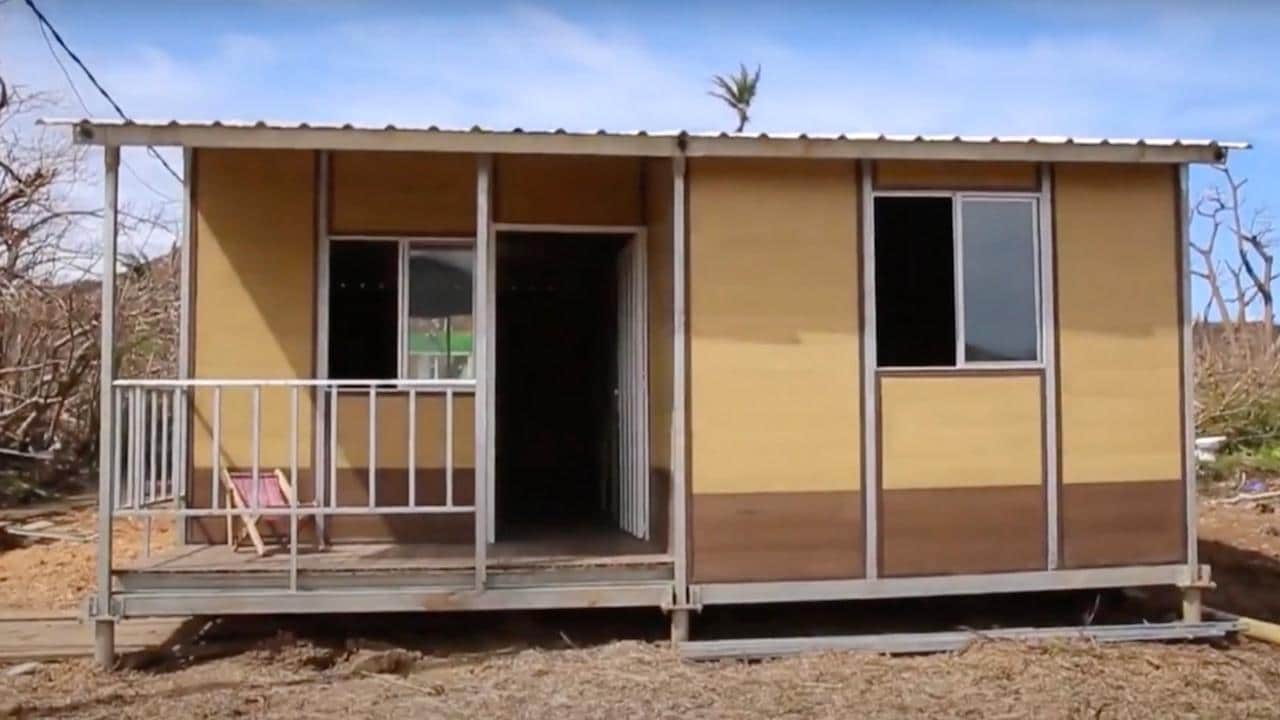

Woodpecker
Colombia is one of the world’s largest producers of coffee, and yet also one of the most economically disadvantaged. According to research by the national statistic center DANE, 35% of the population in Columbia lives in monetary poverty, compared to an estimated 11% in the U.S., according to census data. This has led to a housing insecurity issue throughout the country, one which construction company Woodpecker is working hard to solve.
Woodpecker, a startup in Bogota, Colombia, uses coffee husks to manufacture lightweight, prefabricated buildings for home and classroom use. They combine the coffee husk with recycled plastic to create a more durable and environmentally-conscious material for building. This not only reduces waste from coffee farms that would inevitably end up in the landfills but helps to execute a swift, simple construction that anyone can do. The DIY structure of the Woodpecker buildings was integral to their mission of providing low-income housing for Colombia’s impoverished areas.
The idea for these pre-fabricated tiny homes began with entrepreneur Alejandro Franco, now CEO of Woodpecker. He said in an interview with Fast Company, “We saw that there was a huge necessity for a lightweight construction system for housing and classrooms in rural and isolated places where traditional construction systems cannot go — like bricks, cement, and concrete.”
“Coffee husk was selected because it’s stronger and drier than the other fibers,” explained Franco in the interview. This special wood plastic composite (WPC) material is also self-extinguishing, pest-resistant, and is built to withstand moisture, making it a safe alternative for low-income housing. The standardized plastic parts clip together on a steel frame for simplistic installation. Their large-scale production and use of recycled and waste materials allow Woodpecker tiny homes to be sold for as little as ,500 each.
Because of the low price point and simple installation, the Colombian government reached out to Woodpecker to help locals recover after Hurricane Iota in November of 2020. The government used Woodpecker housing to swiftly provide shelter for displaced citizens when they could not be transported elsewhere.
“The system worked perfectly considering that there was no energy supply, the soil was muddy, the airport damaged, no food, etc. — all the problems that you can imagine,” Franco said in the Fast Company interview. Without this solution, many Columbian locals would have been without shelter. On the Colombian island of Providencia, an estimated 98% of the infrastructure was damaged.
Woodpecker’s plan to reduce the strain of housing insecurity in Colombia is proving successful thus far. They have already sold 2,600 homes, and are planning to expand in the near future. To see Woodpecker’s impact firsthand you can visit their online gallery.
Savannah Hasty is an environmental writer with more than six years of experience and has written thousands of articles for clients around the world. Her work focuses on environmental news, lifestyle content, and copywriting for sustainable brands. Savannah lives on the sunny coast of Florida and is inspired by this to play an active role in the preservation of the state’s marine life and natural ecosystems.
- Kenyan Engineer Recycles Plastic Into Bricks Stronger Than ...
- Could IKEA's New Tiny House Help Fight the Climate Crisis ...
- Coffee Pulp Speeds up Forest Restoration, Study Finds
- Study: Climate Change Could Impact Your Favorite Cup of Coffee

 233k
233k  41k
41k  Subscribe
Subscribe 